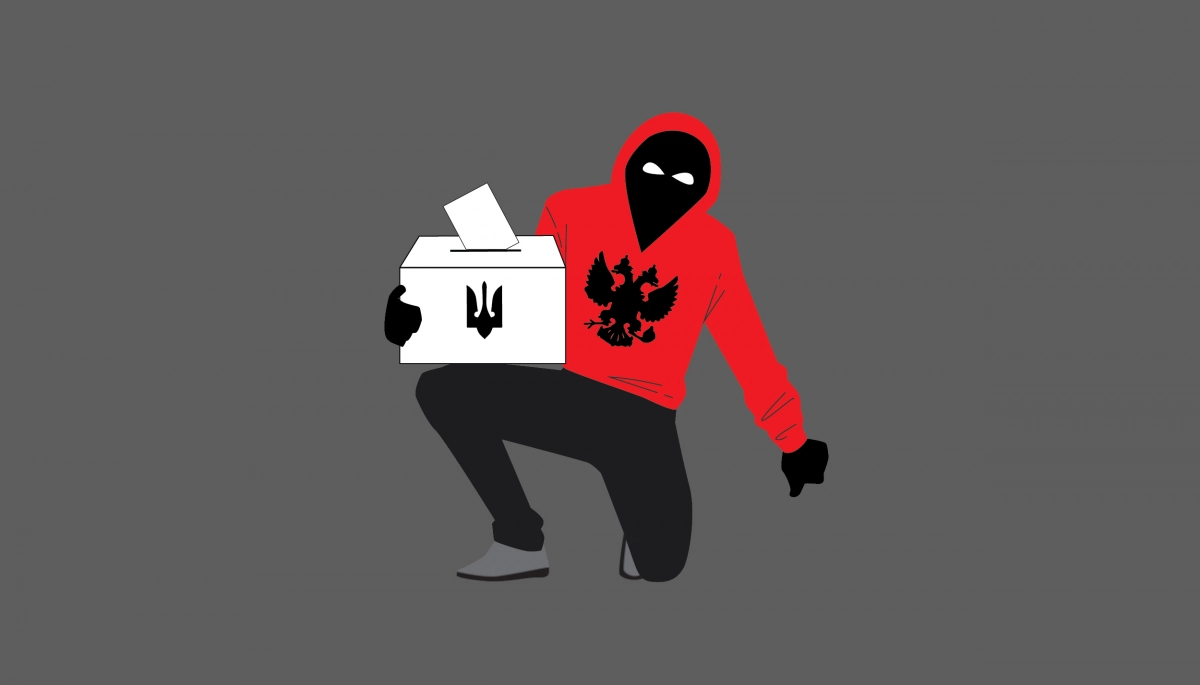

Українською читайте тут.
According to the Constitution, the next parliamentary elections in Ukraine were to be held on October 29, 2023, and the presidential elections in the spring of 2024. However, following the declaration of martial law, in accordance with Article 19 of the Law of Ukraine "On the Legal Regime of Martial Law," elections of the President of Ukraine, the Verkhovna Rada and local governments are prohibited. In order to hold elections, it is necessary to either declare the end of martial law or to amend Ukrainian legislation and obtain the consent of the Constitutional Court on the legality of holding elections under martial law. During one of his visits to Kyiv, U.S. Senator Lindsey Graham said that elections in the country should be held next year, even if the war continues. The lawmaker, who is a member of the Senate Budget and Judiciary Committees, called the elections in Ukraine a symbol of the movement toward democracy. The lawmaker, who is a member of the Senate Budget and Judiciary Committees, called Ukraine's elections a symbol of the country's movement toward democracy. President of Ukraine Volodymyr Zelenskyy said that the 2024 elections in wartime require changes to legislation and additional funding. He also added that, in his opinion, Western countries should share responsibility for elections during wartime if they insist on such an expression of will. The Speaker of the Verkhovna Rada, Ruslan Stefanchuk, said that the best solution would be to hold elections immediately after the lifting of martial law in Ukraine. We have written more about the arguments of experts in favor of the impossibility of holding democratic elections in Ukraine at the moment here. In this article, we will look at the tactics used by Russian propagandists to manipulate the issue of elections in Ukraine under martial law.
The proportion of supporters and opponents of the idea of holding elections in Ukraine before the end of the war varies significantly. According to a survey published by the Razumkov Center in October 2023, 15% of respondents support the idea of holding elections before the end of the war. In their responses, respondents appealed to the following arguments: despite martial law, it is necessary to rotate or at least partially renew the government and elites, to develop new ways to solve existing problems and apply new approaches, and finally, in this way, Ukraine will prove that it is truly a democratic state.
At the same time, 64% of respondents do not support the idea of holding national elections in Ukraine until the war is over, arguing, in particular, that the country has no money for elections, Ukrainian legislation does not allow for elections during martial law, it is problematic to guarantee the safety of voters, and it is impossible to organize voting in the occupied territories. According to this study, 14% of respondents also believe that in the case of online voting, if it is allowed, Russian special services will be able to interfere in the process, and 13% believe that there is a danger of increased internal political conflicts and populist decisions in the context of war. Former president and head of the now-opposition party Petro Poroshenko and civil society organizations also reject the idea of holding elections in Ukraine during a major war. Thus, there is a relative consensus within the country that democratic elections are inappropriate and impossible in the current security environment.
Russia held fake elections in the occupied territories in September. Most local residents did not even notice these elections, but agitprop boasted about them in their information resources. Therefore, Russian propaganda is trying to spread a number of claims about the postponement of elections in Ukraine to domestic and foreign audiences, which are aimed at undermining the stability of the Ukrainian state in the context of a major war.
We have collected and summarized the following messages.
"Zelenskyy is a dictator, so martial law is beneficial for him"
This thesis was noticed by Detector Media analysts while monitoring social media in the spring of 2023, in particular in anonymous Telegram channels broadcasting pro-Kremlin rhetoric. Read more in this article. This thesis emerged in the information space as a reaction to an interview with the President of Ukraine for The Washington Post, in which he said: "If we have martial law, we will not be able to hold elections. The Constitution prohibits holding any elections during martial law." This phrase is the basis of one of the most commonly used propaganda arguments - that Zelenskyy is not interested in elections, because then he will lose power. As soon as the election is announced, Zelenskyy's ratings will fall, because the population does not support his policies en masse. Similar reports began to appear again in the fall. "The war is the only thing that keeps him in power. It has been beneficial to him from day one until now. Remember, before the war, Ze's rating was declining, there were problems in the economy and, of course, corruption scandals. In a week, he was a hero, Bonevtic. A year later, he controls the media and bans dissent. As soon as the war is over, people will vote for Patron's dog, as long as it's not Ze," says one of the anonymous pro-Russian telegram channels with a large audience. "The war remains Zelensky's only source of power. It provides him with unprecedented foreign currency infusions, a media monopoly, power dictates, and the ability to restrict the rights and freedoms of citizens to the minimum he needs. In the end, he admitted it himself. Yes, indirectly, but still. As soon as the war is over, Ze is finished, so he is doing everything to keep it going," the agitprop repeats his instructions in another public.
Zelenskyy's low ratings are presented in such messages as a self-evident truth. Agitprop resorts to the tactic of repetition here. Such statements by agitprop are an attempt to sow doubts about the legitimacy of the Ukrainian government, to impose the idea that it has been in power for too long and should be overthrown. Sometimes, in such contexts, theses are added about Zelenskyy's potential political opponents, who are allegedly also afraid of holding elections: "Our source in the Presidential Administration told us that the Presidential Office decided to put the elections on hold because of the latest sociology, which shows a collapse in Zelensky's rating. The second reason was the fact that Bankova could not agree with Zaluzhnyi to publicly refuse to participate in the presidential campaign, which is why investigative actions were intensified against the Chief of Staff."
At the same time, according to a recent poll by the Razumkov Center, Zelenskyy tops the rating of trust in personalities, with 75% of respondents trusting him, meaning that he currently has perhaps the highest chances of winning the election. "I don't want the government to be perceived as holding on to something. I am not holding on to anything, I would like to hold elections. Honestly, I would like to do it within a year," Zelensky said in an interview with Natalia Moseychuk on 1+1 TV channel. He also pointed to the reasons why it is impossible to hold elections now: the fighting, the destroyed infrastructure and the large number of people who have left the country because of the war.
Zelenskyy's statements about Zelenskyy's "dictatorship" contrast with the realities of Russia itself: Putin has been in power for 23 years, extending his power by "resetting" it, regularly and in various ways neutralizing various political opponents, from non-systemic opposition to former close allies, building a centralized authoritarian power vertical, suppressing freedom of speech, and so on. Democracy in Russia is a facade, imitated, and Putin himself calls it "sovereign."
"Ukraine will lose international support if elections are not held"
Another set of messages concerns the West's alleged disappointment with the Ukrainian authorities' reluctance to hold elections. From the perspective of agitprop, the West doubts Zelenskyy's democratic credentials or even wants him replaced by someone else as soon as possible. Postponing the elections in this picture means a partial loss of support for Ukraine from its allies. "According to British intelligence, the refusal to hold elections in Ukraine will be a powerful trigger in the world that Zelenskyy has departed from democratic principles and is usurping power through a protracted war," one of the anonymous pro-Russian telegram channels shares its alleged insights. There are also reports that Zelenskyy would have agreed to the election only if the West agreed to fraud, but he did not receive such consent: "Our source in the Presidential Office said that the Presidential Office abandoned the idea of elections in 2024 because of the position of the Biden administration, which did not approve Andriy Yermak's idea to use the Diia app to organize the process. This is an important issue for Bankova to have control over the process."
Martial law as a justification for postponing elections: the case of 2018
In 2018, the Verkhovna Rada approved a presidential decree imposing martial law in Vinnytsia, Luhansk, Mykolaiv, Odesa, Sumy, Kharkiv, Chernihiv, Donetsk, Zaporizhzhia, Kherson, and inland waters of the Azov-Kerch water area. This decision was a reaction to Russia's seizure of Ukrainian naval vessels near the Kerch Strait and the captivity of 24 Ukrainian sailors. According to the then Chief of the General Staff of the Armed Forces of Ukraine, Viktor Muzhenko, it was a planned and legal naval operation that did not involve any military action, but the Russian ships used lethal weapons and seized them. Critics of the idea of imposing martial law for 60 days suggested that martial law was a politically motivated move by then-President Poroshenko. There were fears that the decree was nothing more than an attempt to postpone the presidential election, which was to be held in the spring of 2019. In particular, prior to the relevant session of the Verkhovna Rada, an appeal was published from the three presidents of Ukraine, Leonid Kravchuk, Leonid Kuchma, and Viktor Yushchenko, in which they called on MPs to adopt restrictions that would not interfere with the elections. A number of experts saw the imposition of martial law as a "malicious intent." In particular, Maxim Eristavi, a researcher at the Atlantic Council think tank, commented on the situation: "Poroshenko wants to get a head start in his election campaign. He is playing the card of commander in chief, flying around in military uniform trying to project that he is the one in control." Canadian global policy expert and former OSCE spokesperson in Ukraine Michael Bociurkiw told CNN "It remains to be seen whether this billionaire, so-called “Chocolate King” can emerge in time for elections in late March as a patriotic strongman fit to stare down the Russian bear."
It is still unknown whether Poroshenko really had such political plans to postpone the elections, but when security conditions allowed, public opinion defended the institution of elections and they took place as planned. Security conditions after Russia's full-scale invasion are fundamentally different. But propagandists are trying to attribute to Zelenskyy a resemblance to the less popular previous president Poroshenko, according to sociological studies. They say that, like Poroshenko, Zelenskyy is forced to escalate his position in power due to the fragility of his position in the government: "The drop in Zelensky's rating, expressed in so far closed opinion polls and polls in the Telegram, allows us to predict his next steps. Poroshenko went through the same stage of his presidency. At the end of 2018, realizing that he was losing support, the icebreaker sent two boats and a tugboat on a suicide mission to the Kerch Strait. Obviously, the move to Mariupol was not something vital for the country. But it was a pretext for the introduction of martial law in ten regions. And martial law, under the right set of circumstances, could have been a reason not to hold elections... But the partners, as well as the oligarchs who controlled the Verkhovna Rada, did not appreciate the trick, and the elections had to be held. Zelenskyy, losing public legitimacy and support, will do the same thing - he will escalate." By escalation, the agitprop means refusing to agree to Moscow's demands to recognize the annexation of Ukrainian territories and grant it the right to interfere in Ukraine's foreign and domestic policy.
There are a number of factors that make democratic elections unlikely in the current security environment. This includes the threat of air strikes or a possible permanent air alert due to repeated flights of Russian bombers on election day. Residents of the occupied territories would also be deprived of elections, and it would be unrealistic to organize voting for millions of Ukrainian refugees abroad. Hundreds of thousands of military personnel, including mobilized citizens, are performing combat missions every moment and cannot be distracted by the election campaign. In addition, fully democratic elections involve pluralism and debate, which in the case of Ukraine will primarily concern the war. Such debates can also split society and undermine the decisions of the military and political elite, which the Kremlin's information machine will definitely use. The Russians are well aware of these arguments, but they still resort to the tactic of substituting concepts. They say that the elections are impossible not because of Russia's full-scale attack on Ukraine, but because of Zelenskyy's personal whim. He is allegedly deliberately slowing down various processes and preventing elections in order to stay in power. However, in reality, it is Russia that is contributing to the postponement of the elections in Ukraine, as it continues to wage active hostilities against it.


